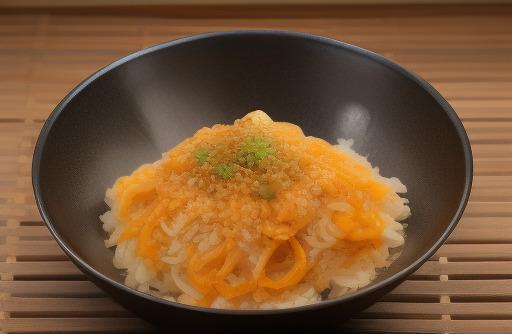- You are here:
- Home »
- Food Substitutes
- » Best Substitutes For Sesame Oil
Best Substitutes For Sesame Oil

Sesame oil is a flavorful and aromatic oil commonly used in Asian cuisine. It adds a nutty and rich taste to dishes, making it a staple in many recipes. However, there are instances where you may find yourself without sesame oil or looking for a healthier alternative. In such cases, it is useful to know the best substitutes for sesame oil that can replicate its unique flavors and textures.
Key Takeaways
- Sesame oil is commonly used in Asian cuisine for its distinct nutty flavor and aroma.
- There are several substitutes for sesame oil, including other oils, condiments, and seasonings.
- The choice of substitute depends on the recipe and personal preferences.
- Some popular substitutes for sesame oil include peanut oil, sunflower oil, soy sauce, and tahini paste.
Why You Need A Substitute For Sesame Oil
There are several reasons why you may need a substitute for sesame oil:
-
Allergies: Some people may have sesame allergies and need an alternative oil to avoid any adverse reactions.
-
Availability: Sesame oil may not be readily available in your local grocery store or pantry. Having a substitute option allows you to continue cooking without compromising on flavor.
-
Health considerations: While sesame oil has numerous health benefits, it is high in calories and may not be suitable for individuals on a restricted diet. Substituting with a healthier option can help reduce calorie intake.
-
Taste preferences: Different individuals have various taste preferences. Some may not enjoy the distinct nutty flavor of sesame oil and may prefer a different substitute with a milder taste.
Types Of Substitutes For Sesame Oil

When looking for substitutes for sesame oil, it is essential to consider the type of recipe you are preparing. Here are a few common types of substitutes:
-
Other Oils: Many oils can replicate the texture and some of the flavors of sesame oil. Peanut oil, sunflower oil, and grapeseed oil are often used as substitutes in cooking.
-
Condiments: Certain condiments can add a similar flavor profile to dishes. Soy sauce, fish sauce, oyster sauce, and Worcestershire sauce are commonly used to provide a savory and umami taste found in sesame oil.
-
Nut pastes: Some nut pastes, such as tahini, can be used as a substitute for sesame oil. Tahini is made from ground sesame seeds, providing a similar nutty flavor to dishes.
-
Seeds: In some recipes, you can use toasted sesame seeds as a substitute. The seeds will provide a crunchy texture and mild nutty flavor.
Best Substitutes For Sesame Oil
-
Peanut Oil: Peanut oil is one of the best substitutes for sesame oil due to its similar nutty taste and high smoke point. It is commonly used in Asian cooking and works well in stir-fries and marinades. However, be cautious if anyone has peanut allergies.
-
Sunflower Oil: Sunflower oil is a neutral-flavored oil that is a suitable substitute for sesame oil. While it lacks the nutty flavor, it has a light taste and works well as a cooking oil and salad dressing base.
-
Grapeseed Oil: Grapeseed oil is another neutral-flavored oil that can be used as a substitute for sesame oil. It has a high smoke point, making it ideal for frying and sautéing. Grapeseed oil is also rich in omega-6 fatty acids, making it a healthier alternative.
-
Soy Sauce: Soy sauce is commonly used in Asian cuisine for its savory and umami flavor. It can provide a similar taste profile to sesame oil and is an excellent substitute in marinades, dressings, and stir-fry dishes.
-
Fish Sauce: Fish sauce is another condiment that can add a distinct flavor to dishes. It is commonly used in Southeast Asian cuisines and can be used as a substitute for sesame oil in small amounts to achieve a umami taste.
-
Tahini Paste: Tahini paste, made from ground sesame seeds, can be a great substitute for sesame oil. It has a rich and nutty taste and works well in dressings, dips, and sauces.
Pro Tip: When using tahini paste as a substitute for sesame oil, mix it with a neutral oil such as sunflower or grape seed oil in equal parts to achieve a smoother consistency and milder taste.
Choosing The Right Substitute For Sesame Oil

To choose the right substitute for sesame oil, consider the following factors:
-
Flavor: Think about whether you want a substitute that replicates the nutty flavor of sesame oil or if you prefer a milder taste. Peanut oil and tahini paste provide a similar nutty flavor, while sunflower oil and grapeseed oil have a more neutral taste.
-
Smoke Point: If you plan to use the substitute for high-heat cooking methods like frying or sautéing, opt for an oil with a high smoke point, such as peanut oil or grapeseed oil.
-
Texture: If the goal is to replicate the texture of sesame oil, consider using toasted sesame seeds or tahini paste.
-
Recipe Compatibility: Some recipes may require the distinct flavors of sesame oil and may not work well with substitutes. Consider the compatibility of the substitute with the other ingredients of the recipe.
Cooking With Substitutes For Sesame Oil
When using a substitute for sesame oil, keep the following in mind:
-
Adjust quantities: Substitutes may have different flavor intensities compared to sesame oil. Start by using a smaller amount and adjust to taste.
-
Experiment: Different substitutes may work better in certain dishes. Take the opportunity to experiment and find what works best for your recipe.
-
Add towards the end: Some substitutes, such as soy sauce or fish sauce, have strong flavors and can overpower a dish if added too early. Consider adding them towards the end of the cooking process to retain the integrity of the flavors.
-
Consider the smoke point: Some substitutes may have different smoke points than sesame oil. If you are using high heat in your recipe, choose an oil with a high smoke point to prevent it from burning.
Recipes Using Substitutes For Sesame Oil

Here are two delicious recipes that can be made using substitutes for sesame oil:
1. Stir-Fried Vegetables With Peanut Oil
Ingredients:
- 2 tablespoons peanut oil
- 1 red bell pepper, sliced
- 1 yellow bell pepper, sliced
- 1 small onion, thinly sliced
- 1 cup broccoli florets
- 1 cup snap peas
- 2 cloves garlic, minced
- 2 tablespoons soy sauce
- 1 tablespoon rice vinegar
- Salt and pepper to taste
Instructions:
- Heat peanut oil in a wok or large skillet over medium-high heat.
- Add the bell peppers, onion, broccoli, and snap peas. Stir-fry for 3-4 minutes until the vegetables are tender-crisp.
- Add the minced garlic and stir-fry for another minute.
- In a small bowl, whisk together soy sauce, rice vinegar, salt, and pepper. Pour the sauce over the vegetables and toss to coat evenly.
- Continue stir-frying for another 2-3 minutes until the sauce has thickened slightly.
- Serve hot with steamed rice or noodles.
2. Tahini Salad Dressing
Ingredients:
- 3 tablespoons tahini paste
- 2 tablespoons lemon juice
- 1 tablespoon honey or maple syrup
- 1 clove garlic, minced
- 1/4 cup water
- Salt and pepper to taste
Instructions:
- In a small bowl, whisk together tahini paste, lemon juice, honey or maple syrup, and minced garlic.
- Slowly add water while whisking continuously until the dressing reaches the desired consistency.
- Season with salt and pepper to taste.
- Use the dressing to dress salads, roasted vegetables, or as a dip for pita bread.
Storage And Shelf Life Of Substitutes
The storage and shelf life of substitutes for sesame oil depend on the specific substitute used. Oils such as peanut oil, sunflower oil, and grapeseed oil should be stored in a cool and dark place away from sunlight. They typically have a shelf life of around 1-2 years.
Condiments like soy sauce, fish sauce, and tahini paste should be refrigerated after opening and consumed within a few months for optimal freshness.
Seeds, such as toasted sesame seeds, can be stored in an airtight container in a cool and dark place. They generally retain their quality for up to 6 months.
Conclusion
While sesame oil is a popular ingredient in Asian cuisine, there are several suitable substitutes that can replicate its unique flavors and textures. Whether you are looking for an alternative due to allergies, availability, health considerations, or personal taste preferences, options like peanut oil, sunflower oil, soy sauce, and tahini paste can provide similar flavors and textures. Experiment with different substitutes to find the best option for your recipes, and consider factors such as flavor, smoke point, and recipe compatibility. With these substitutes, your dishes will not lose their deliciousness even without sesame oil.
FAQS
What Are The Properties Of Sesame Oil That Make It A Preferred Option In Cuisines?
Sesame oil is highly flavoured, nutty, and rich in aroma. It has a high smoke point, which makes it perfect for high-heat cooking. Besides, it adds a distinctive flavour to dishes, making them more delicious. It is rich in vitamins and minerals that boost metabolism and improve overall health.
What Are Some Of The Best Substitutes For Sesame Oil In Cooking?
Sesame oil has a unique flavour, but it can be substituted with other oils that have similar properties. Peanut oil, sunflower oil, canola oil, avocado oil, and walnut oil are great substitutes for sesame oil. They have high smoke points, mild flavours, and a nutty aroma thus making them perfect for stir-fry dishes and sauces.
Can Olive Oil Be Used As A Substitute For Sesame Oil?
Olive oil can be used in place of sesame oil, but it has a lower smoke point than sesame oil. It might not be ideal for high-heat cooking, but it can be used for light sautéing, drizzling on salads, or as a dip. Olive oil has a strong flavour, making it unsuitable for dishes where sesame oil is a key ingredient.
Are There Any Health Benefits Associated With Using Substitutes For Sesame Oil?
The benefits of using substitutes for sesame oil may vary depending on the type of oil used. For instance, peanut oil has high levels of healthy fatty acids that promote heart health, while sunflower oil is rich in Vitamin E, which acts as an antioxidant that protects cells from damage. Canola oil is low in saturated fats and rich in monounsaturated fats, making it ideal for reducing bad cholesterol levels.
Can Coconut Oil Be Used As A Substitute For Sesame Oil?
Coconut oil can be used as a substitute for sesame oil, but it has a distinctively different flavour. Coconut oil has a sweet, nutty aroma and is high in healthy fats, making it ideal for sautéing and flavouring dishes. However, it is not recommended for dishes where sesame oil is a critical ingredient, such as stir-fry dishes.
Sources
About the Author Jenny
I'm Jenny, a housewife with an unwavering passion for food. My culinary journey began with my grandmother's kitchen, and it's now a full-fledged food blog. I've turned my love for cooking into a creative outlet, sharing recipes and stories with a global community of fellow food enthusiasts. It's proof that being a housewife can also mean pursuing your passions and savoring life's delectable moments.
